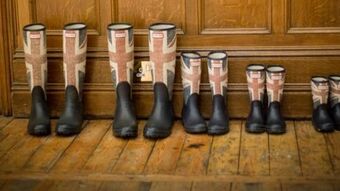New report: Individualistic tax system is crippling UK one-earner families
Marriage and Family
-
Tax burden on one-earner married families with two children 30 per cent greater than the OECD average.
-
Struggling families face highest effective marginal tax rate in western world
-
Income tax burden 85 per cent more than a comparable French family, more than twice as much as a comparable US family and 11 times as much as that on a comparable German family.
-
Yet again the Government is pursuing the politically motivated plan of increasing the personal allowance which is expensive and fails to recognise family responsibilities
Today, MPs in Parliament will hear new research which shows how the UK’s individualistic tax system unfairly penalises families in the UK.
CARE’s latest tax report shows that decisions made to increase the personal tax allowance has led to a disturbing individualism at the heart of the UK’s tax system, making marriage fiscally unattractive.
The report, ‘The Taxation of Families – International Comparisons 2017’, reveals that the tax burden faced by one-earner married couples with two children on the average wage is a staggering 30 per cent higher in Britain than the rest of the OECD. Meanwhile, the tax burden on a single parent with two children is 26 per cent greater than the OECD average.
But when you look at the tax burden on a single person without family responsibilities it is significantly less than the international averages – eight per cent less than OECD average and 18 per cent less than the average for the EU (22).
One-earner married couples with two children on the 75 per cent average wage face the highest effective marginal tax rate in the developing world - a crippling 73 per cent. By contrast the UK income tax burden on a single person without children is 13 per cent less than the OECD average at the OECD average wage.
The latest figures from The Office of National Statistics (ONS) show that stay-at-home spouses contribute thousands of pounds a year to the economy. But their worth is omitted from the tax system, with the marriage tax allowance sitting at a pitiful 10 per cent.
If the Government introduced a fully transferable tax allowance for a smaller group of one-earner married couples, such as those with the children under five, this would go a long way to improve support for struggling families across the UK.
This could also incentivise cohabiting couples to marry, which would also benefit the Government as family breakdown annually costs the Government over £50 billion. Cohabiting parents make up 19 per cent of all couples with dependent children, but account for half of all family breakdown.
CARE’s Chief Executive Nola Leach said:
“The way that the UK tax system treats two people on the same wage, but one who has family responsibly is absurd. It penalises families and generously rewards single people who have no family responsibly.
“In allowing successive increases in the personal allowance whilst neglecting the marriage tax allowance, the Government has in turn made marriage fiscally unattractive.
“Sadly in his latest Budget, the Chancellor failed to address the discriminatory nature of the tax system and instead chose to increase the personal allowance.
“These increases mainly benefit single people and couples without children, households which are frequently in the top half of the income distribution.
“Countless studies have illustrated the benefits of marriage, especially on child stability. But with UK tax system rigged in favour of the individual, it does not promote marriage to be a viable choice.
“The UK is completely out of step with other OECD countries, who do recognise the importance of marriage in their tax system.
“The Government must urgently review its treatment of one-earner families. If the Government is serious about helping struggling families then it must act to reduce their tax burden.
“The simplest way to do this would be to introduce a fully-transferable tax allowance to married couples with children under five.
“This would go a long way to improving support for struggling families across the UK.”
Ends
Notes to Editors:
For all press inquiries please contact Rachael Adams on 020 7227 4708 / 07851 153693 or Rachael.adams@care.org.uk
CARE (Christian Action Research and Education) is a well-established mainstream Christian charity providing resources and helping to bring Christian insight and experience to matters of public policy and practical caring initiatives. CARE is represented in the UK Parliaments and Assemblies, at the EU in Brussels and the UN in Geneva and New York.
The Taxation of Families Report – International Comparisons 2017
The findings of the report were presented at a seminar in parliament on Wednesday morning (31 October) in Committee Room 4, Committee Corridor, Palace of Westminster at 1:45pm. If you would like to come please either reply to this email or RSVP chris.buttenshaw@care.org.uk. The Lord Bishop of Chester will be hosting the presentation.
For many years, CARE has been at the forefront of research on how families fare in the UK tax and benefits system, both domestically and internationally. Click here to read our latest reports on this.
ONS figures reveal massive economic value of stay-at-home spouses - CARE
ComRes polling for CARE found that nearly six in ten (58 per cent) people support an increase in the marriage allowance, compared to just 20 per cent who are opposed.








Share story
New report: Individualistic tax system is crippling UK one-earner families